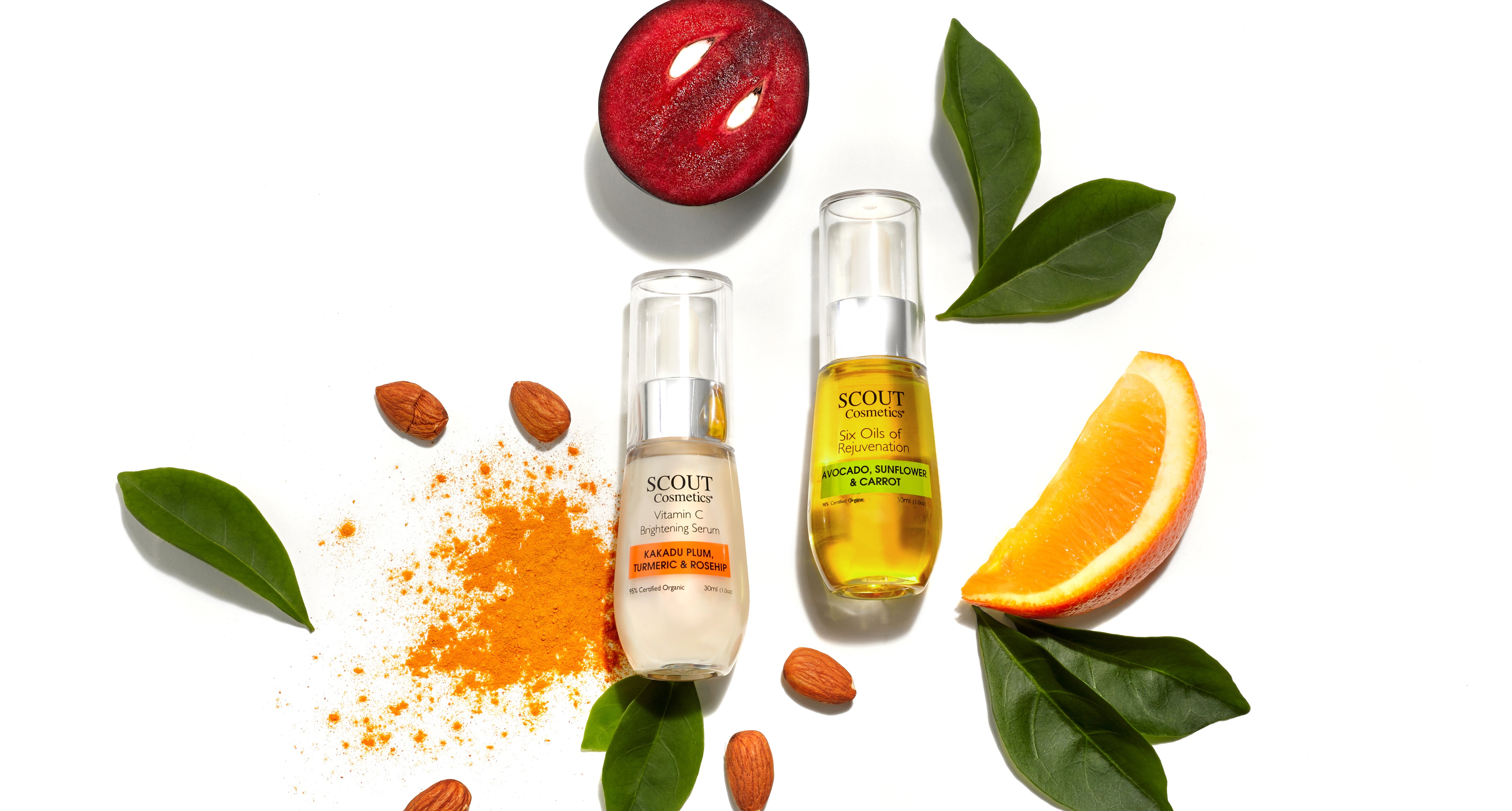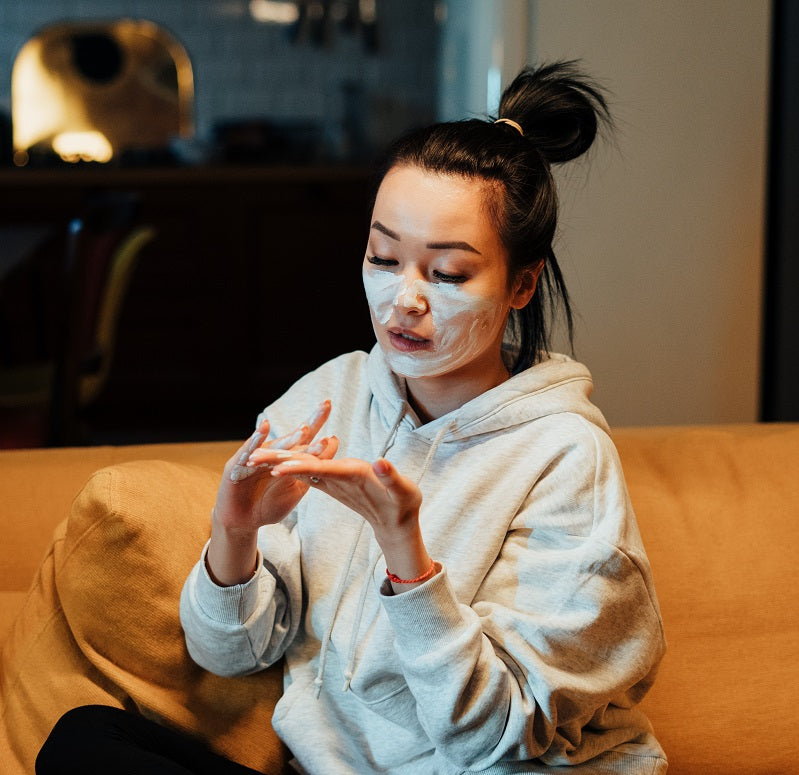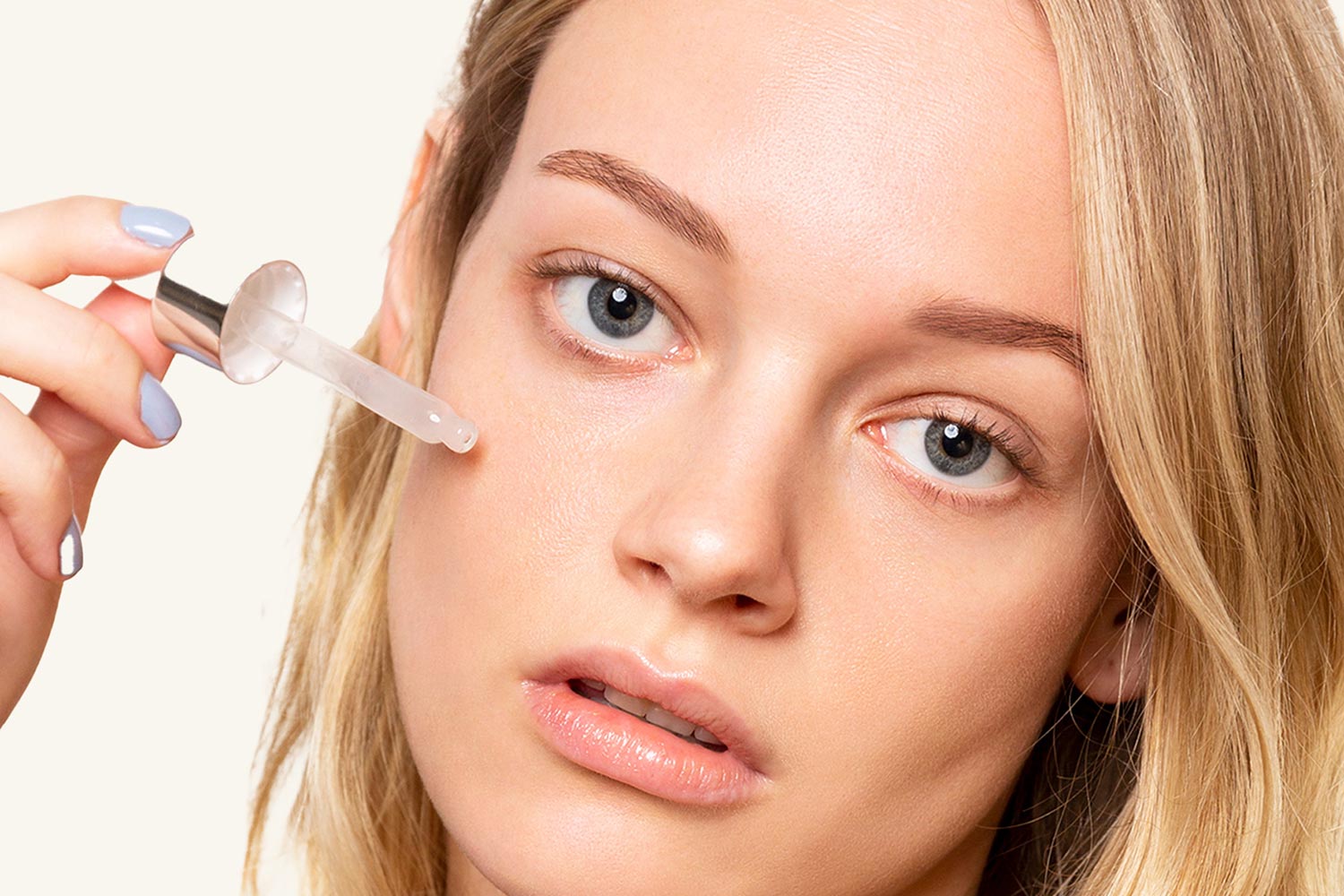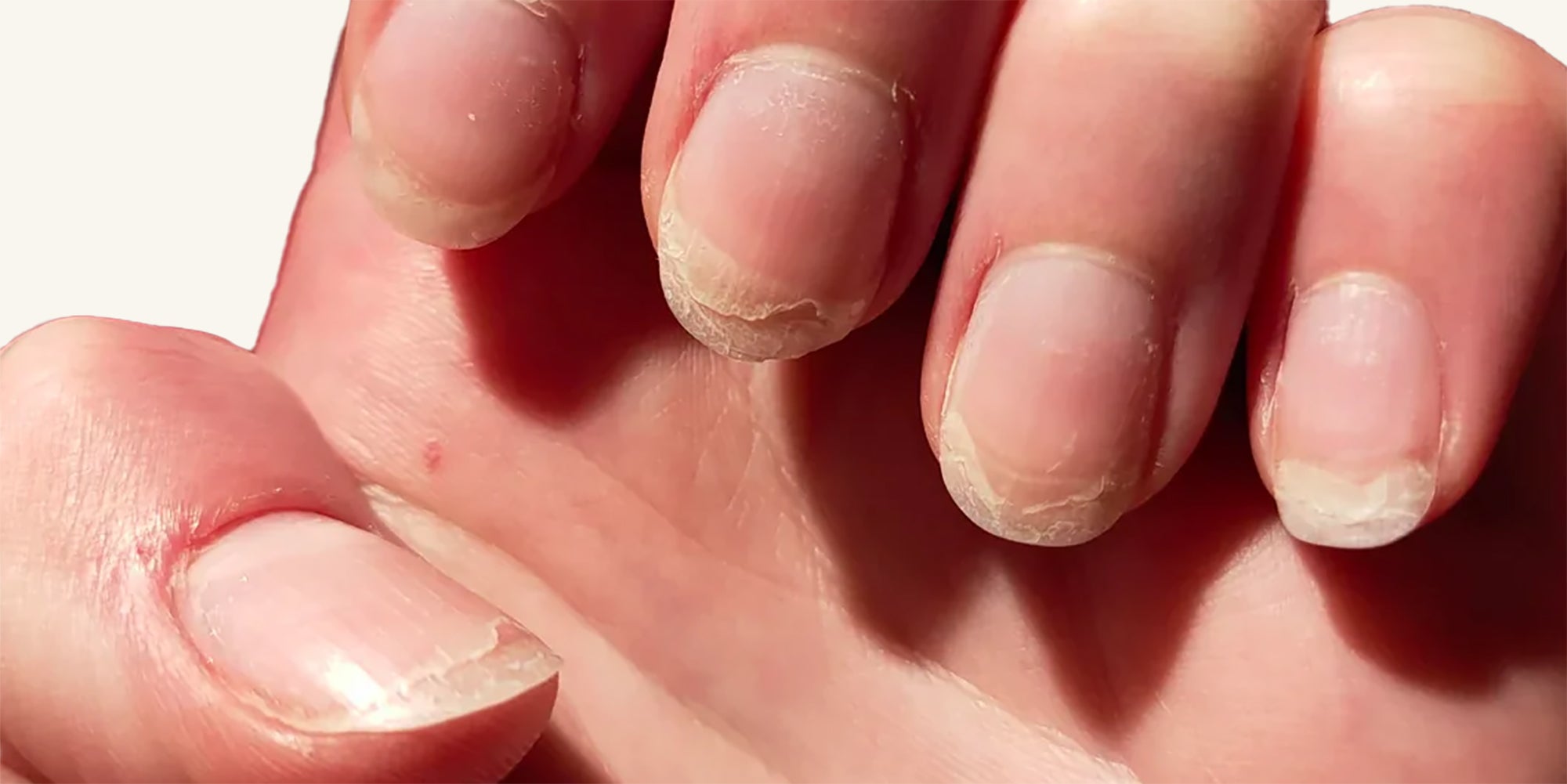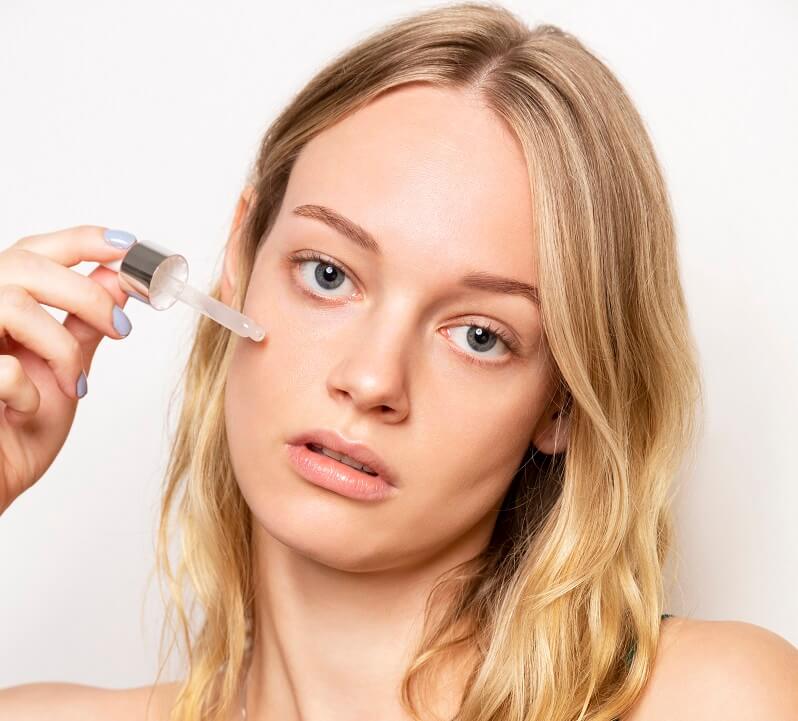
Peptides for Skin: Benefits, Types & How to Use in Skincare
You might have heard about peptides for the skin, but with so many options and choices in skincare these days, it's hard to keep track of what's what.
Peptides, also called polypeptides, are strings of amino acids that make up specific proteins like collagen, keratin and elastin naturally occurring in the body. You can think of these proteins as body's building blocks. They keep skin firm, hair healthy and shiny and nails strong.
But then, why use something that our skin makes naturally, you may ask? Well, with passing time, aging decreases collagen and other proteins' production, and the skin starts losing firmness, brightness and getting more wrinkles. That's why we want to give these processes a boost with high-quality products.
So let's dig deeper and see what adding peptides to your skincare routine can do for your skin.
Peptides for the skin
We lose about 1% of our remaining collagen per year after turning 30 (some sources say that this happens even *gasp* earlier).
That's why adding peptides to your skincare routine is so beneficial. Peptides penetrate the outer layer of the skin and sink deeply to do the job.
How do they stimulate the production of collagen, elastin and keratin, the most common proteins making up our skin? It might help thinking of them as messengers that send signals to the cells saying, "Hey, it's time to get to work and produce more"!
Peptides in skincare are like magicians that make the skin "think" that there's a wound, and so it stimulates the collagen-boosting processes.
Added production of all these proteins helps reinforce the skin's repair barrier function, one of the many benefits of peptides for skin.
For people who experience premature aging, these signals and boosted production can help plump the skin and make it look younger.
Most common types of peptides
There are many different types of peptides for skin, but not all of them are equally beneficial. Some of the most common in skincare are signal peptides, carrier peptides, enzyme inhibitor peptides and neurotransmitter inhibitor peptides.
According to self.com, neurotransmitter inhibitors may decrease the appearance of fine lines by blocking the release of acetylcholine—a neurotransmitter heavily involved in muscle contractions. Their effect is sometimes likened to Botox.
Carrier peptides boost collagen, and enzyme inhibitor peptides slow down the skin's natural collagen breakdown. Signal peptides send messages to promote the production of collagen, elastin and other proteins.
You will also find palmitoyl tripeptides that are anti-inflammatory, hydrate the skin and reduce the appearance of wrinkles, fine lines and other signs of skin damage caused by the sun and environmental pollution.
Benefits of peptides
You're probably now convinced about the importance of collagen and how it affects our skin. However, the collagen molecule itself is too large to be absorbed through the skin, which means you can't use, e.g. a moisturiser with collagen as it simply wouldn't work. That's where peptides that can be absorbed come in to activate collagen production.
But what does that actually mean, and what are the benefits of collagen peptides?
Improved and healthier skin barrier
A healthy skin barrier protects you from various toxins, sun damage, bacteria and pollution. However, the skin can also be damaged by such factors as over-exfoliating, smoking, stress or lack of sleep. Peptides work to build the barrier back healthier and stronger.
Reduced appearance of fine lines and wrinkles
Oh, wrinkles, how we wish you never appeared! Luckily, because peptides work to stimulate collagen and elastin production, your skin starts looking plumper, healthier, firmer and the wrinkles and fine lines appear to be less visible. That's a definite win in our book!
Shop Cell Renewal Peptide Serum with Green Tea, Ginseng and Fig
More elastic and firmer skin
Even if you don't have many wrinkles, your skin might look tired, sagging and lack firmness. Peptides can help here, too, especially those that inhibit the nerve signals and soften the lines caused by movement (like smile lines or frown lines). As peptides stimulate elastin fibre growth, they also contribute to skin looking firmer.
Reduced inflammation
Just living in the modern world can cause skin inflammation. From pollution to sun damage to various reactions to skincare, we're surrounded by irritants. But the antioxidants in peptides can help fight inflammation by soothing and calming the skin. Choose carrier peptides if you're experiencing inflammation as they heal skin from inside out.
More hydration
The decrease in collagen production also leads to dehydration. Great, right? But if you use peptides, by boosting collagen, they also boost hyaluronic acid production, which is essential for hydration and moisturisation. That's some good news!
As healthline.com explains, hyaluronic acid is the main component of what gives your skin structure and is responsible for that plump and hydrated look. Yes, please.
How to choose peptide products
With endless options on the shelves and online, it can get overwhelming to decide which peptides for skin products to choose. Here are some tips you should follow.
Look at the ingredients. To get the most of your product, look at the label and choose a product that also has antioxidants, hyaluronic acid, Vitamin C or niacinamide. Niacinamide, for example, helps to minimise pores, facilitate cell renewal and brighten a dull complexion.
If the product also lists alpha hydroxy acid (AHA), skip it as the acid will make them less efficient.
Choose the right form. For peptides to work best, you want a product that stays on your skin for a longer period. That's a serum or a moisturiser. A cleanser will not be as powerful and effective.
Shop Organic Serums & Oils
How to use peptides in skincare
So now that you know how incredibly useful peptides can be to your skin and wellbeing let's talk about how to use them.
In general, it is safe to use peptides twice a day, but your personal frequency of use will depend on the product itself and your skin type.
It is very easy to incorporate peptides into your routine. If you're using a serum, apply it under your moisturiser on clean skin and don't forget SPF.
You shouldn't use peptides with AHA acids, but you can use them with retinol.
And don't forget the power of nutrition and add such collagen-rich foods as bone broth to your diet.
SCOUT'S Cell Renewal Peptide Serum
Here at SCOUT, we understand the value of peptides for skin, and that's why we've created our potent and luxurious Cell Renewal Peptide Serum with Green Tea, Ginseng and Fig.
It plumps the skin, fights the first signs of ageing, prevents fine lines, wrinkles, pigmentation and strengthens the skin's defence barrier.
This powerful serum fights against the first signs of ageing through a potent blend of naturally antioxidant-rich organic ingredients.
The serum further contains potent peptides such as Perfection Peptide 7 and Matrixyl Sinthe'6, which boosts collagen production, smoothes deep wrinkles, and replenishes the skin's lipid layer for an overall perfected and refined skin texture.
We believe in the synergy between nature and science. That's why the antioxidant-rich fusion between the peptides, Vitamin B3, Green Tea, and Ginseng work together to neutralise free radicals that cause fine lines, wrinkles, and pigmentation by strengthening the skin's defence barrier.
Niacinamide (Vitamin B3) helps to reinvigorate the healthy skin tone to create a plump, youthful and glowing complexion.
It's so simple to add the serum to your daily routine. Just press a few drops into cleansed face, neck and décolletage until absorbed and add your favourite moisturiser.
Order your SCOUT'S Cell Renewal Peptide Serum NOW.



